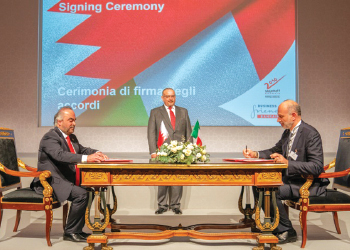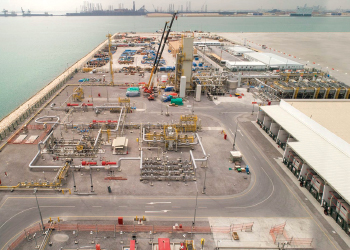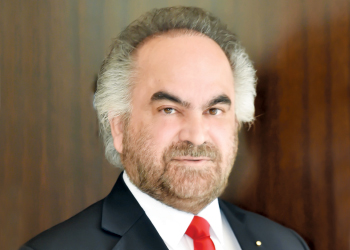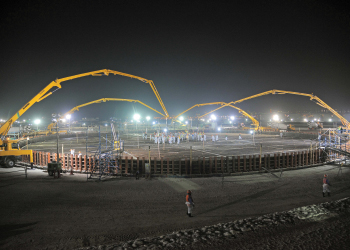
 LNG receiving and regasification terminal ... the first in the Middle East
LNG receiving and regasification terminal ... the first in the Middle East
Bahrain last month completed the mechanical construction and commissioning of an offshore $645-million liquefied natural gas (LNG) terminal, says a report by Bahrain LNG, the developer and owner of the first LNG receiving and regasification terminal in the Middle East developed on a PPP basis.
Commenting on the completion, Minister of Oil and Chairman of Tatweer Petroleum Shaikh Mohammed says: "The achievement of construction completion for the Bahrain LNG receiving and regasification terminal is a critical milestone for this project which is of strategic importance to Bahrain's energy sector.
"We sincerely congratulate all parties involved in this tremendous achievement, and we look forward to the upcoming commencement of commercial operations in order to secure regasification services to the Kingdom of Bahrain."
The facility will be operated by a consortium consisting of Noga; Canadian firm Teekay; Gulf Investment Corporation (GIC); and Samsung Engineering. The plan is to initially source LNG on international spot markets, before concluding longer-term supply contracts after several years.
Noga has signed MSPAs (Master Supply Purchase Agreements) with more than 25 LNG international and reputable suppliers. This allows for a wide option for LNG imports from various sellers thereby easing the procurement process.
The terminal will house a floating storage unit (FSU), an offshore LNG receiving jetty and breakwater, a regasification platform, subsea gas pipelines from the platform to shore, an onshore gas receiving facility, and an onshore nitrogen production facility.
In 2018, Banagas successfully commissioned the Bahrain Gas Plant Project with at an installed capacity of 350 mmscfd—double that of current processing capacity as well as the expansion of the storage facilities together with all necessary supporting utilities and pipelines. The project was completed on time, on budget and on high international quality standards. The plant is expected to double the revenues from LPG sales starting from this year.
In addition to direct economic benefits, most of the residue gas from the new plant will be recycled back to the Bahrain Field. This residue gas is of importance for the gas injection process that has been (and will continue to be) applied as part of the enhanced oil recovery programme carried out by Tatweer Petroleum.









































































